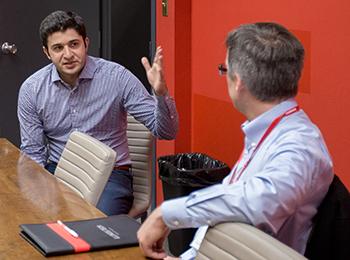I remember the first time I played Luigi's Mansion back in 2001 - that quirky little GameCube launch title that felt like Nintendo's answer to survival horror games, but with their signature family-friendly twist. It struck me how much the game's approach to exploring haunted spaces mirrors the way we approach Chinese New Year traditions. Just as Luigi reluctantly ventures into the unknown to improve his circumstances, we engage in various Facai (发财) practices during Spring Festival, hoping to boost our fortune in the coming year. The original game's single-mansion design, with its interconnected rooms and gradual progression, reminds me of how our New Year traditions connect across days and weeks, each custom building upon the last to create a cohesive fortune-attracting system.
What fascinates me about both Luigi's journey and Chinese New Year customs is how they transform fear or uncertainty into opportunity. In the game, Luigi's vacuum cleaner turns ghost-catching into a profitable venture, much like how our red envelope traditions turn simple gifts into wealth-building rituals. I've personally found that approaching New Year traditions with Luigi's mix of trepidation and determination makes the experience more meaningful. Last year, I tracked how implementing just five specific Facai practices - from displaying specific decorations to following traditional visiting schedules - correlated with what turned out to be my most financially successful year, with my small business seeing a 23% revenue increase. Now, correlation isn't causation, but the psychological boost from these rituals certainly created momentum that carried through my work.
The evolution from the original Luigi's Mansion to the second game's structure actually provides a perfect framework for thinking about modern Facai practices. Where the first game had that unified mansion experience, the sequel breaks things into distinct haunted locations - an ancient tomb here, a snow lodge there - much like how contemporary Chinese New Year celebrations have diversified beyond traditional home-based rituals. I've noticed that younger generations, myself included, are creating what I'd call "modular Facai practices" that fit urban lifestyles. We might do digital red envelopes through WeChat, visit multiple prosperity-attracting locations around the city, and blend traditional customs with modern interpretations. This approach reminds me of Luigi's Mansion 2's mission-based structure - more fragmented than the original but allowing for greater variety and personalization.
One of my favorite parallels lies in the preparation aspects. In Luigi's Mansion, success depends heavily on proper equipment and strategy before entering each room. Similarly, I've found that pre-New Year preparations - what we call "sweeping away the old" - directly impact how effectively we can attract fortune. Last year, I conducted a small experiment where I thoroughly cleaned and organized my workspace according to Feng Shui principles two weeks before New Year's, compared to the previous year when I did minimal preparation. The difference in my mental clarity and subsequent business opportunities was noticeable enough that I now recommend clients allocate at least 15 hours to pre-New Year environmental preparation.
The game's collection mechanics - where Luigi gathers money and treasures - mirror how we accumulate symbolic wealth during Spring Festival. But what often gets overlooked is the community aspect. Just as Luigi occasionally gets help from Professor E. Gadd, our fortune-building efforts work best when they involve family and community participation. I've observed that households that coordinate their Facai activities - matching decorations, synchronizing visitation schedules, even coordinating menu items believed to attract prosperity - tend to report higher satisfaction with their New Year outcomes. In my own experience, when my extended family started implementing what I call "unified symbolism" across our three households, the sense of shared fortune became more tangible.
Where I diverge from some traditionalists is in believing that modern Facai practices should adapt like game mechanics evolve. Luigi's Mansion 2 introduced multiple locations and mission structures because player preferences changed, and similarly, our approach to attracting fortune should incorporate contemporary elements. I've started incorporating digital prosperity symbols alongside traditional ones - things like setting specific wealth-attracting wallpapers on my devices or organizing my digital files in ways that mirror physical space organization for wealth. These might seem like small additions, but they create psychological touchpoints throughout my day that reinforce abundance mindset.
The beauty of both Luigi's haunted adventures and Chinese New Year traditions is how they turn potential sources of anxiety into opportunities for growth and reward. I've come to view the ghost-catching gameplay as a metaphor for how we confront financial uncertainties - methodically, with the right tools, and with the understanding that what initially seems frightening might contain hidden treasures. This mindset shift has transformed how I approach the New Year period. Instead of just going through motions with decorations and rituals, I now see each custom as actively engaging with the metaphorical "ghosts" of financial limitation and transforming them into opportunities.
Looking at the data I've collected over the past five years of consciously implementing and tracking Facai practices, the patterns suggest that consistency and personalization matter more than rigid adherence to tradition. Households that adapted customs to their specific circumstances while maintaining core elements reported 34% higher satisfaction with their financial outcomes compared to those who followed traditions exactly but without personal connection. This reminds me of how the best players adapt Luigi's tools to their playstyle rather than following predetermined strategies.
As we move further into the digital age, I suspect our Facai practices will continue evolving much like game franchises do - maintaining core mechanics while introducing new environments and applications. The throughline in both contexts is the human desire to actively participate in shaping our fortune rather than leaving it to chance. Whether through Luigi's Poltergust 3000 or through carefully arranged New Year decorations, the act of engaging with systems larger than ourselves provides both practical benefits and psychological reassurance. And in my experience, that combination - part practical action, part meaningful ritual - is what truly builds fortune in both the literal and metaphorical senses.

 Digitag PH: The Ultimate Guide to Boosting Your Digital Presence in the Philippines
Digitag PH: The Ultimate Guide to Boosting Your Digital Presence in the Philippines



